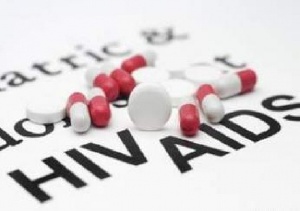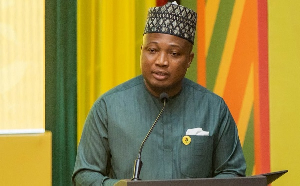Mr. Mahama Abu, Technical Coordinator of the Ghana AIDS Commission Western Regional Technical Support Unit, on Monday said HIV continued to be a major global public health issue, having claimed more than 39 million lives so far.
There were approximately 35 million people living with HIV at the end of 2013 with 2.1 million people becoming newly infected with HIV in 2013 globally, he said.
Mr. Abu was speaking at a programme to commemorate this year’s World AIDS Day under the theme “Towards an HIV free generation through prevention of mother-to-child transmission of HIV, Safe Sex and Stigma reduction” at Takoradi.
He said in 2013, 1.5 million people died from HIV related causes globally and sub-Saharan Africa is the most affected region with 24.7 million people living with HIV in 2013.
Mr. Abu said sub-Saharan Africa accounts for almost 70 per cent of the global total of new HIV infections.
He said in 2013, 12. 9 million people living with HIV were receiving antiretroviral therapy (ART) globally, of which 11.7 million were receiving ART in low and middle income countries.
Mr. Abu said the 11.7 million people on ART represent 36 per cent of the 32.6 million people living with HIV in low and middle income countries.
He said too many people still lack access to comprehensive HIV treatment and prevention services.
Mr. Abu said the Health Sentinel Survey Report (2013) indicates that there has been an increase in HIV prevalence from 1.9 per cent in 2011 to 2.4 per cent in 2012 and 2013 while the prevalence rate in the Sekondi-Takoradi Metropolis also increased from 2 per cent in 2011 to 2.4 per cent in 2012 and escalated to 3. 8 per cent in 2013.
In 2013 there were decreases in prevalence in all age groups except the 15-19 and 45-49 age groups, he said.
Mr. Abu urged all young people to be bold and go for testing saying pregnant women must be encouraged and advised to test to know their status so that they could be given treatment to prevent them passing the virus to their babies.
He said new HIV infections had been reduced by 76 per cent through prevention of mother-to-child transmission programmes.
Mr. Abu said if a pregnant woman is tested HIV positive, she would be monitored and given medication to ensure she does not transfer the infection to her unborn child.
Mr. Abu said if a husband is tested positive, he would be given drugs and can live a healthy and productive life so “Let us support pregnant women who test positive and ensure that they adhere to treatment to safeguard their babies”.
Dr. Roland Sowah, Regional Sexual Transmitted Infection (STI), HIV and AIDS Coordinator also advised young people to abstain from unprotected sex which account for 80 per cent of infection.
He said those who had tested positive should take their medication and follow medical advice.
Dr. Sowah said antiretroviral drugs is free to people living HIV who have registered with the National Health Insurance Scheme (NHIS) and those who are not with the scheme pay small amount for the drugs.
Mr. Ato Dadzie, senior programme officer of Youth Challenge International, commended the First Lady and people in leadership positions who are involved in HIV campaign.
He said people living with HIV must be given the care and support they need instead of looking down on them.
Health News of Wednesday, 3 December 2014
Source: GNA













